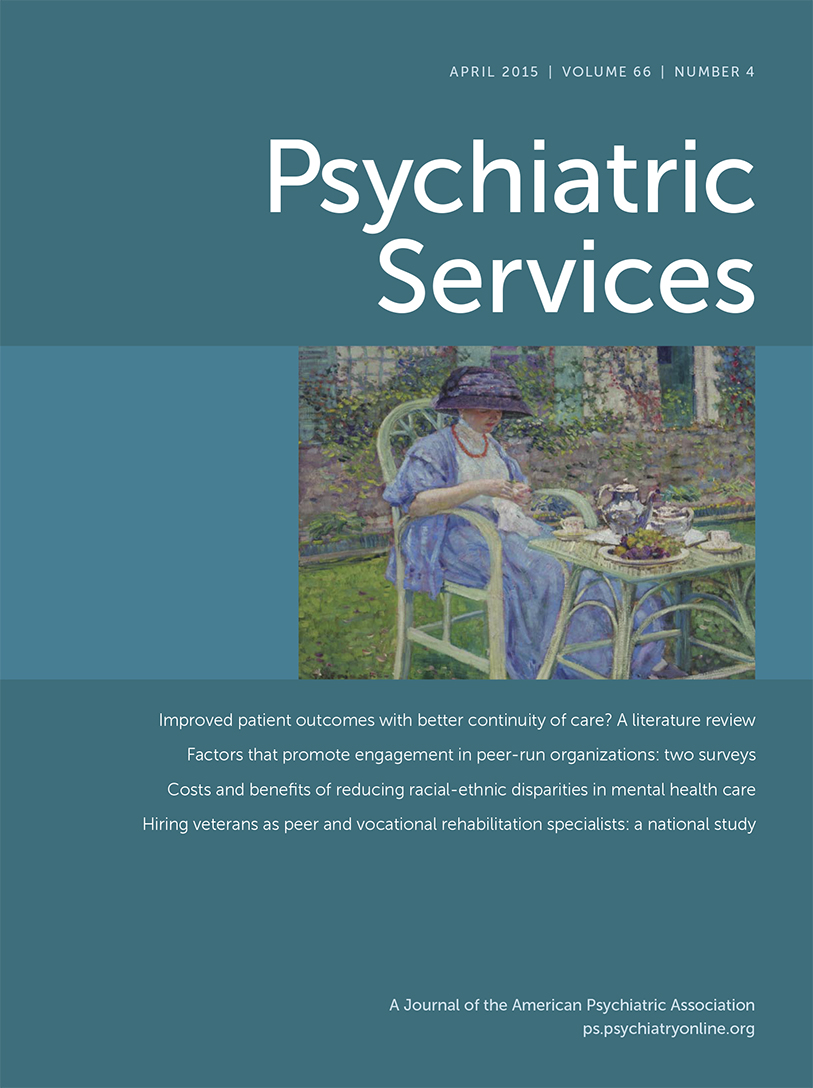Hiring Peers as Vocational Specialists
Peer support is an important aspect of service delivery for people with serious mental illness. As described in the article by Eisen and colleagues in this issue, the U.S. Department of Veterans Affairs (VA) established peer specialist positions to assist veterans with social skills, serve as role models, connect veterans with community resources, and combat stigma. Mental health agencies outside the VA have created similar positions. The VA also established the Homeless Veterans Supported Employment Program and hired 400 veterans who were at risk of homelessness and who had a severe physical, cognitive, or emotional disability or history of such disability to provide employment services for homeless veterans.
Hiring employment specialists on the basis of having a disability and risk of homelessness laudably extends employment for homeless veterans. But how effective were the vocational specialists in helping other veterans obtain and keep employment? Some of the vocational specialists probably had excellent outcomes. The role of an employment specialist is indeed complex, requiring communication skills for connecting with employers, caregivers, family members, and job seekers who have unique strengths, experiences, and challenges. Although supervision helps people who are new to these positions, most employment program leaders find that screening for specific skills, training, and personal characteristics is necessary to find candidates who will be successful in the job. Hiring qualified people who also have a psychiatric disability can improve workforce diversity and inclusion. Outcome data are key.
Agencies hire people with lived experience of a mental disability for a variety of reasons. For example, agencies can show their support of the recovery movement by creating peer provider positions. Paid positions give people the benefits of an earned income. Peer providers benefit therapeutically themselves. Agencies may take advantage of the peer workforce to fill jobs—and specifically to fill jobs that require people who have lived with a disability and who can offer their recovery story as a beacon for other peers. Yet risks are involved when agencies develop programs that limit opportunities, rather than broaden them, in the name of supporting peer providers. Are mental health agencies offering job opportunities, both inside and outside the provider agency, to peers that are consistent with their talents, skills, and preferences? The recovery path of self-determination and personal and social connectedness is best supported when people are given a wide range of opportunities and find a good fit for themselves.
The VA has a long history of creating sheltered jobs within the VA. But these jobs can be limiting and may not stimulate recovery. Do these jobs really match veterans’ skills, preferences, and career goals? Do they help veterans to recover? Do the veterans help those they are hired to serve?
Supported employment includes careful matching of the job candidate’s profile to the employer’s job requirements. In this way, employment specialists help people with serious mental illness successfully gain employment and support them in career advancement. Job matching should also guide the hiring of employment specialists.
Individuals who should be hired are those who are qualified to do the job. In the case of peer support specialists, peer certification courses give people the knowledge, skills, and support to carry out the job duties. For this position, sharing information about one’s own recovery provides encouragement and support. Appropriate job matching is still an important consideration for hiring. Similarly for employment specialists, those with the necessary qualifications are the ones who should be hired. Some employment specialists are qualified for the position and also have a mental disability. They may choose to disclose their history, or they may not. In either case, the job duties of employment specialists are to help people find and keep employment and are the basis for their employee evaluations.
All agencies need to evaluate whether their services are creating a broad range of employment opportunities. Are peers being steered into agency provider positions, possibly at low salaries, without encouragement, direction, and support to find employment opportunities outside the agency in the regular labor market in positions that are consistent with their career profile? All of us need to be paid fair wages and to have good supervision, room for advancement, and access to jobs for which we are suited, as well as the right to disclose—or not to disclose—one’s recovery story.




